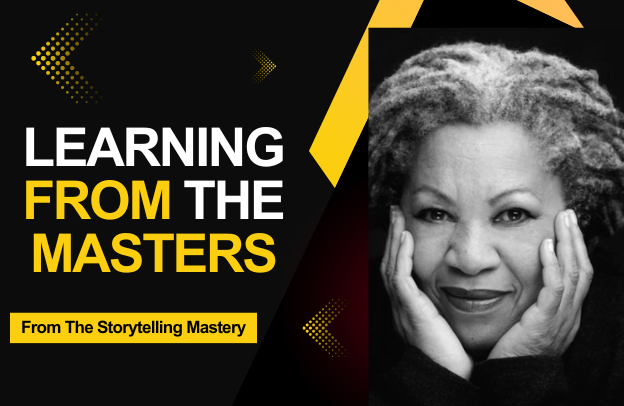Why You Need a Life Mission: 3 Lessons from Martin Luther King Jr.

Imagine waking up every day with a clear sense of purpose, knowing exactly what you need to do and why you are doing it. This is the power of having a life mission. As Martin Luther King Jr. once asked, “Life’s most persistent and urgent question is, ‘What are you doing for others?'” see this question as the essence of living a life driven by a mission.
Want to learn more about storytelling? Start by downloading the first chapter of The Storytelling Mastery.
Drawing from the legacy of Martin Luther King Jr., this guide will show you why having a life mission is crucial and how you can apply these lessons to build your influence and make a greater impact in society.
Who was Martin Luther King Jr?
Martin Luther King Jr. was an influential American civil rights leader, best known for his role in advancing civil rights through nonviolent protest. Born on January 15, 1929, in Atlanta, Georgia, King emerged as a pivotal figure in the Civil Rights Movement during the 1950s and 1960s.
He was a Baptist minister who drew inspiration from Mahatma Gandhi’s principles of nonviolence and Christian doctrine to fight racial segregation and injustice.
King’s leadership in key events like the Montgomery Bus Boycott and his presidency of the Southern Christian Leadership Conference (SCLC) galvanized national and international support for civil rights causes.
King’s oratory skills and compelling vision for equality are epitomized in his iconic “I Have a Dream” speech, delivered during the 1963 March on Washington for Jobs and Freedom. His efforts were instrumental in the passage of landmark legislation, including the Civil Rights Act of 1964 and the Voting Rights Act of 1965.
Despite facing constant threats and opposition, King remained steadfast in his commitment to nonviolence until his violent assassination on April 4, 1968. His legacy endures as a symbol of the struggle for justice and equality, inspiring future generations to continue advocating for human rights.
Now, let’s look at three key reasons why you should consider having a life mission. We will take cues from Martin Luther King Jr and different ways to apply the lessons in your life.
It Provides Direction and Purpose to your life
Having a life mission provides you with a clear direction and purpose. It is the compass that guides you through life’s challenges and uncertainties. Without a mission, you might find yourself drifting aimlessly, unsure of your goals or how to achieve them. A life mission anchors you, giving you a reason to get up in the morning and a clear path to follow.
Consider the life of Martin Luther King Jr. His mission for civil rights and social justice provided him with an unwavering focus and determination. Despite facing immense adversity, his sense of purpose guided his actions and decisions.
For instance, during the Montgomery Bus Boycott, King’s mission was clear: to end racial segregation and achieve equality for all. This purpose not only directed his efforts but also sustained his resolve in the face of threats and challenges.
You can apply this lesson to your own life by identifying what you are passionate about and what values you hold dear. Reflect on the issues that stir your emotions and the changes you wish to see in the world.
Journaling can be a powerful tool to explore these thoughts. Write about your interests, your values, and the causes that matter to you. Over time, patterns will emerge, helping you to crystallize your life mission.
Once you have a clearer sense of your mission, set specific, achievable goals that align with it. This will provide you with a roadmap, making your journey more manageable and purposeful.
Remember, your mission doesn’t have to be grandiose; it just needs to be meaningful to you. Whether it’s advocating for environmental sustainability, supporting mental health awareness, or promoting education, having a mission will give your life direction and purpose.
Inspiring And Mobilizing Others To Support You
A life mission not only benefits you but also has the power to inspire and mobilize others. When you are passionate and committed to a cause, your enthusiasm can be contagious, encouraging others to join you in your efforts. This collective action can lead to significant change and amplify your impact.
Consider checking out our collection of the Martin Luther King Series.
Martin Luther King Jr. exemplified this through his ability to inspire and unite people. His vision of equality and justice resonated with millions, galvanizing them to take action. One of the most iconic examples of this is his “I Have a Dream” speech.
Delivered during the March on Washington in 1963, this speech moved countless individuals to support the civil rights movement. King’s eloquence and conviction transformed his personal mission into a collective aspiration for a better society.
To harness the power of inspiration, start by sharing your mission with others. Communicate your vision clearly and passionately, whether through conversations, social media, or public speaking.
Be authentic and let your genuine commitment shine through. People are drawn to sincerity and will be more likely to support a cause that you genuinely care about.
Additionally, seek to involve others in your mission. Collaboration and teamwork can significantly enhance your efforts. Engage with like-minded individuals and organizations and create opportunities for others to contribute.
See also New Hawaii-Zambia Collaboration Ignites Interest in Decolonizing African Education
Whether it’s organizing community events, leading workshops, or participating in advocacy campaigns, your ability to inspire and mobilize others will multiply your impact.
Having a Clear Direction Helps leave a Lasting Impact
A life mission allows you to leave a lasting impact on the world. It enables you to make meaningful contributions that endure beyond your lifetime. When your actions are guided by a mission, they are more likely to create lasting change and build a legacy that others can continue.
Martin Luther King Jr.’s legacy is a testament to the enduring power of a life mission. His work in the civil rights movement led to monumental achievements such as the Civil Rights Act of 1964 and the Voting Rights Act of 1965.
See also Barack Obama’s Senate Floor Speech on Voting Rights Act Reauthorization
These legislative victories transformed American society and continue to influence the fight for justice and equality today. King’s mission-driven life ensured that his impact would be felt for generations to come.
To leave a lasting impact, think long-term about the changes you want to see. Consider the legacy you wish to build and the contributions you want to be remembered for. This perspective will help you make decisions that align with your mission and create sustainable change.
Mentorship is a powerful way to extend your impact. By guiding and supporting the next generation, you can ensure that your mission continues to thrive. Share your knowledge, experiences, and insights with others, helping them to develop their own missions and make their mark on the world.
Moreover, create projects and initiatives that have a sustainable and lasting effect. This could involve establishing organizations, developing programs, or advocating for policies that address the root causes of the issues you are passionate about.
The goal is to create structures and systems that will continue to advance your mission even when you are no longer actively involved.
See also Martin Luther King, Jr. Remembrance Speech
Conclusion on 3 Lessons from Martin Luther King Jr
In conclusion, having a life mission is essential for providing direction and purpose, inspiring and mobilizing others, and leaving a lasting impact. Drawing from the example of Martin Luther King Jr., you can see how a clear and compelling mission can transform not only your life but also the lives of those around you.
As you reflect on these lessons, consider what your own life mission might be. Take the time to explore your passions and values and think about the changes you want to see in the world. Remember, your mission doesn’t have to be grand; it just needs to be meaningful to you.
Once you have identified your mission, communicate it passionately and involve others in your journey. Use your enthusiasm to inspire and mobilize those around you, creating a collective force for good.
See also Stop Attracting the Wrong Clients to Your Business, Do This Instead
Finally, think long-term about the impact you want to leave and take steps to build a legacy that will endure.
By embracing a life mission, you can create a life of purpose, influence, and lasting impact. So, ask yourself, “What am I doing for others?” and let this question guide you towards a mission-driven life.
Want to learn more about storytelling? Start by downloading the first chapter of The Storytelling Mastery.





